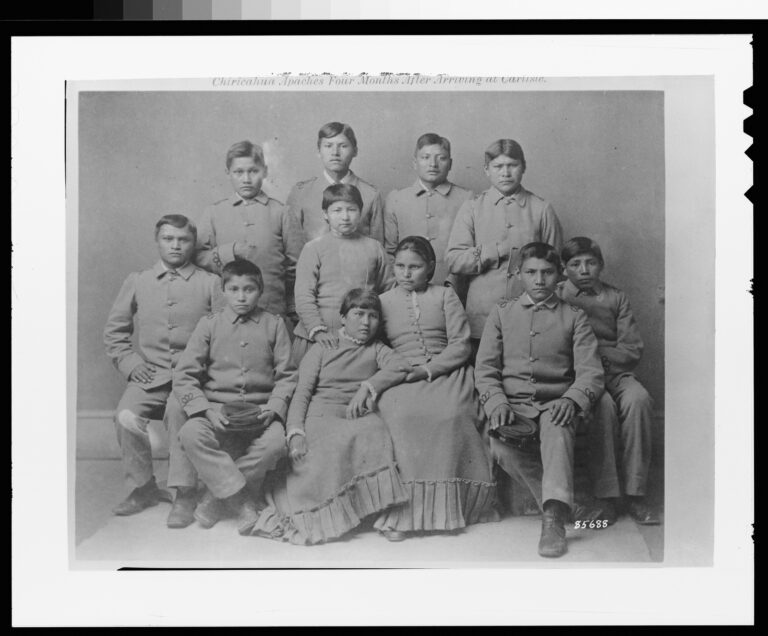All content categorized with: Education
Filter
Post List
Implications for Race-Based Scholarships in the Wake of SFFA
This past summer (June 29, 2023) the United States Supreme Court overturned 45 years of precedent and ruled that the University of North Carolina and Harvard University’s affirmative action programs violated the Equal Protection Clause of the Fourteenth Amendment by considering race in their admissions process–effectively ending affirmative education…Teaching Slavery in Commercial Law: The Simulation
THIS SIMULATION IS REFERRED TO IN VOLUME 28, ISSUE 1, TEACHING SLAVERY IN COMMERCIAL LAW BY CARLISS N. CHATMAN. The Simulation: Syllabus: Slavery and Commercial Law At Washington and Lee Teacher’s Manual…Teaching Slavery in Commercial Law
Public status shapes private ordering. Personhood status, conferred or acknowledged by the state, determines whether one is a party to or the object of a contract. For much of our nation’s history, the law deemed all persons of African descent to have a limited status, if given personhood at all. The property and partial personhood status of African-Americans, combined with standards developed to facilitate the growth of the international commodities market for products including cotton, contributed to the current beliefs of business investors and even how communities of color are still governed and supported. The impact of that shift in status persists today. The commodities markets and the nations that rose and prospered would not be possible without the slave trade, and that trade would not be possible without the legal, business, and social norms in place to facilitate private ordering and growth while reinforcing the subjugation of African-Americans. Yet, many business and commercial law professors devote class time to teaching foundational and historical material, without any consideration of the impact of slavery. To avoid slavery in business and commercial law courses is to ignore an institution that plays a pivotal role in much of what we do today. Slavery is not a frolic, it is foundational. Many American universities played a role in the slave trade—either by receiving funds from the enterprise or receiving the enslaved as donations and using their labor or disposing of them for the financial advancement of the institution. In my Core Commercial Concepts course, a Uniform Commercial Code (UCC) survey class covering Articles 2, 3, 4, and 9, I devote time and space to discussions of race and the law by making the connection between the history of commercial concepts, slavery, and the role of the cotton industry in the shaping of international commercial law norms. In my simulation, described in this Essay, I teach the story of Washington and Lee University’s sale of individuals for the purpose of ensuring the institution’s financial survival, then extrapolate from the facts to review the high points of commercial law. I incorporate materials on the legacy of slavery at my own institution to provide students with a scenario based on the acquisition of real property and construction of buildings they engage with on campus. In this Essay I explain the methods I use to explore these concepts. Working in a framework that focuses on classification and status, my students consider issues of federalism and the impact of statutory definitions on private ordering, while discussing how these definitions shape the relationship of African-Americans to commerce.Abusing Discretion: The Battle for Childhood in Schools
For too many children the schoolhouse doors become a point of entry into the criminal justice system. Children of color are the most likely to suffer from this phenomenon. The presence of policing in schools is a key contributor to this “school-to-prison pipeline.” This Note argues that broad, discretionary mandates for school resource officers (SROs) promote biased law enforcement that impacts Black girls in different and specific ways. I contend that SRO mandates can be effectively limited by strategically bolstering community organizing efforts with impact litigation.Africana Legal Studies: A New Theoretical Approach to Law & Protocol
“African people have produced the same general types of institutions for understanding and ordering their worlds as every other group of human beings. Though this should be obvious, the fact that we must go to great lengths to recognize and then demonstrate it speaks to the potent and invisible effect of the enslavement and colonization of African people over the last 500 years.” – Greg Carr
Social Maladjustment: Misidentification Prevents Black Students from Receiving Special Education Services
By: Alexis Franks, Associate Editor Vol. 27 The IDEA and the Emotional Disturbance Category The Individuals with Disabilities Education Act (IDEA), first enacted in 1975, provides federal funding for special education services for children with disabilities.[i] The goal of the legislation is that all handicapped children, who were…
The Dismissed Tragedy Behind the Native American Boarding School System
By: Meghan PateroAssociate Editor, Vol. 26 One thing I’ve realized about myself in law school is that, when reading about historical events, I often downgrade the event’s importance and subsequent consequences. I read the words at face value and dismiss the significance attached to the event at that time. As…
The Right to Education: Where We Go Next
By: Daniel BaumAssociate Editor, Vol. 26 This blog calls on scholars and practitioners to advocate, and for courts to hold, that every student in this country—no matter whether they live in Orange, Wayne, or Washtenaw County, or whether their skin is Black, white, or neither—possesses a fundamental right to…
How the Individuals with Disabilities Education Act Fails Minority Students
By: Liza DavisAssociate Editor, Vol. 26 Under the Individuals with Disabilities Education Act (IDEA), every child with a disability who participates in a state school system accepting federal special education funds is guaranteed a free appropriate public education in the least restrictive environment appropriate.[i] Instead of ensuring that all…#ForTheCulture: Generation Z and the Future of Legal Education
Generation Z, with a birth year between 1995 and 2010, is the most diverse generational cohort in U.S. history and is the largest segment of our population. Gen Zers hold progressive views on social issues and expect diversity and minority representation where they live, work, and learn. American law schools, however, are not known for their diversity, or for being inclusive environments representative of the world around us. This culture of exclusion has led to an unequal legal profession and academy, where less than 10 percent of the population is non-white. As Gen Zers bring their demands for inclusion, and for a legal education that will prepare them to tackle social justice issues head on, they will encounter an entirely different culture—one that is completely at odds with their expectations. This paper adds depth and perspective to the existing literature on Generation Z in legal education by focusing on their social needs and expectations, recognizing them as critical drivers of legal education and reform. To provide Gen Z students with a legal education that will enable them to make a difference for others—a need deeply connected to their motivators and beliefs—law school culture must shift. Reimagining, reconstituting, and reconfiguring legal education to create a culture of inclusion and activism will be essential and necessary. Engaging in this work “for the culture” means getting serious about diversifying our profession by abandoning exclusionary hiring metrics, embedding social justice throughout the law school curriculum, and adopting institutional accountability measures to ensure that these goals are met. Gen Zers are accustomed to opposing institutions that are rooted in inequality; law schools can neither afford, nor ignore the opposition any longer. We must begin reimagining legal education now—and do it, for the culture.



